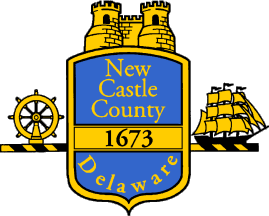Guys and Dudes
/Hey guys! What’s up, dudes?
How often do you say those words? I mean, really think about it. If you’re a Millennial or GenXer, “guy” and “dude” may constitute upwards of ten percent of your normal day-to-day speech. Now, how often do you sit and ponder where they actually came from? If you have a life, probably never. You certainly don’t need to know the origin of one single word in a language in order to speak it well, but every word does nonetheless have an origin, and some are more interesting than others. Even most language nerds can’t muster more than an ounce of excitement over words like concatenate or supercilious. But guy and dude… it’s words like these that go through quite a lot to end up peppering our daily conversation. They tend to arrive on the scene with some fairly interesting résumés, and we like to give them more than a nonchalant glance.
It’s amazing to me how a single event can inject a language with a word or phrase that gains significant currency and survives long after the memory of the event has faded from public consciousness. In the case of our first word, that event is a thwarted terrorist attack in the early 17th century. If you’re familiar with Alan Moore’s graphic novel V for Vendetta or the 2006 movie adaptation, you might recall this folk rhyme as recited by the protagonist:
Remember, remember, the Fifth of November,
The Gunpowder Treason and plot;
I know of no reason why the Gunpowder Treason
Should ever be forgot.
Well, in the United States especially, the Gunpowder Treason has mostly been forgot. Even in Britain, where the event itself took place, the observances associated with the Fifth of November have largely been replaced by the festivities of Halloween, particularly among British youth. Of course, keep in mind that it happened over 400 years ago—in fact, Shakespeare’s Othello had only just premiered one year earlier—so it stands to reason that the memory would have dimmed by now. But the plot in question has bequeathed to virtually all of us in the anglophone world a remarkable memento: the word guy. On that particular November 5th in 1605, a midnight search of the undercroft beneath London’s House of Lords discovered a man guarding 36 barrels of gunpowder with matches and touchwood in his pocket. An anonymous tip-off letter sent to Lord Monteagle a week earlier had suggested that he and his fellow Lords would be blown up during the opening of Parliament. The man with the gunpowder did not deny these intentions, and gave his name as “John Johnson.” After several days of torture, he finally admitted his real name: Guy Fawkes. He also gave up the identities of his twelve co-conspirators. Their intent was to destroy the House of Lords and assassinate King James I, along with virtually the entire English Protestant political establishment. The plotters were all Catholics and had become disillusioned with James, who after two years on the throne had all but reneged on his promise of leniency toward the English Catholics. Fawkes and his cohorts sought to restore Catholic power to England, and they believed their plan was righteous and for the good of the country. The following year brought about the execution of the plotters, a strengthening of Britain’s overall support for the King, and a notable rise in anti-Catholic sentiment.
Guy Fawkes interrogated by King James I
To commemorate the foiled plot and James’s deliverance, sermons and celebrations were conducted every November 5th, eventually evolving into Bonfire Night (also known as Guy Fawkes Night) in the United Kingdom. Traditionally, revelers would light fireworks and bonfires, burning effigies of Guy Fawkes or other figures of contempt, including the Pope. Bear in mind that the Gunpowder Plot was still fresh in the consciousness of the Pilgrims who sailed to Massachusetts and established the Plymouth Colony in 1620. Along with their provisions they imported their cultural traditions to the New World. On both sides of the Atlantic, the practice of parading the grotesque Guy Fawkes effigies around town and burning them at the fire produced the term guy in reference to these figures, even if they were not of Fawkes himself. Years later, the word was eventually used as an epithet for any strange or oddly dressed person. Ultimately, and primarily in the United States, it became an informal synonym for any man or person in general. These days, as many people say “guy” as say “man” in daily speech, and even a group of women can be saluted with an informal “Hi, guys!”
Bonfire Night also gave birth to the Guy Fawkes mask, a stylized version of which is seen in V for Vendetta (as illustrated by David Lloyd), later appropriated by the hacktivist group Anonymous. Not to downplay his involvement, but as a matter of record Guy Fawkes wasn’t the mastermind of the plot; that was a man named Robert Catesby. However, because of his association with the gunpowder itself, Fawkes would end up becoming the name (and face) permanently associated with the Treason. If Robert Catesby had been the symbol of the plot in the minds of the British public, you might be saying instead that your uncle Rick is a really nice “bob.”
But what about dude? It’s possibly the most pervasive American slang term in modern conversation. What mate is to the UK and Australia, dude is to the US. Nothing as shocking as a plan to blow up Parliament was responsible for this ubiquitous colloquialism; rather, a maligned and ridiculed fashion trend spawned the word and spread it among the populace. It was originally a somewhat derogatory term for an effete, excessively fastidious and image-obsessed man, similar to a fop or dandy. In the year 1883, there emerged among New York City gentlemen a craze for aesthetic dress and mannerisms, often in pretentious imitation of the British. Nineteenth-century London fashionistas such as Beau Brummell and Oscar Wilde were typical inspirations. The American aesthetes took themselves seriously and did not call themselves “dudes” except facetiously. Baby Boomers and glam rock enthusiasts will be familiar with the 1972 Mott the Hoople song “All the Young Dudes” (written by David Bowie), whose title refers to this original foppish stereotype.
Decades later, the term came to refer to East Coast city slickers who vacationed out West to experience the cowboy lifestyle. Real cowboys called them “dudes”—this still a somewhat pejorative nickname—and thus the dude ranch was born. It wasn’t until the African American community took the word in the 1960’s and began imbuing it with a new sense of perceived “coolness” that the word was divorced from its unfavorable associations. It was concurrently appropriated by the Southern California surfer community and eventually diffused far and wide, so much so that a large swath of that state is unofficially known as the “dude belt.” Many words have been popularized by the surfing and skateboarding cultures of Southern California: we have surfers and skaters to thank for endowing words like gnarly, bro, sick, and epic with their current slangy meanings and making them so commonplace in the US. However, dude is probably the most famous Americanism to have been squeezed through the SoCal filter, and now—just like guy—it has generalized to such a degree that I have heard many a twenty-something declare “there are too many ‘dudes’ at this party.”
Back in my formative years there was a show on the Nickelodeon network about a group of teenagers working on a dude ranch—the obvious title: Hey Dude! By this point, the term as we now use it had become widespread enough to function as a facile pun. The word’s “cool factor” has been further bolstered by such pop culture milestones as the Quincy Jones album The Dude and the Coen brothers’ film The Big Lebowski, the protagonist of which is called “The Dude.” The latter production garnered a cult following so dedicated that it even generated a tongue-in-cheek but still kind-of-serious “religion” called Dudeism. Check out Dudespaper.com if you don’t believe me. You can even become an ordained Dudeist priest.
So, guy and dude have come a long way just to end up coloring the modern American vernacular. To me, the most impressive aspect shared by these two words is the fact that they were both originally terms of contempt, eventually being stripped of their negative undertones and pressed into service as indispensable colloquialisms. Think about that the next time you say you’re getting a beer with the “guys” or call your neighbor Keith a cool “dude.”











